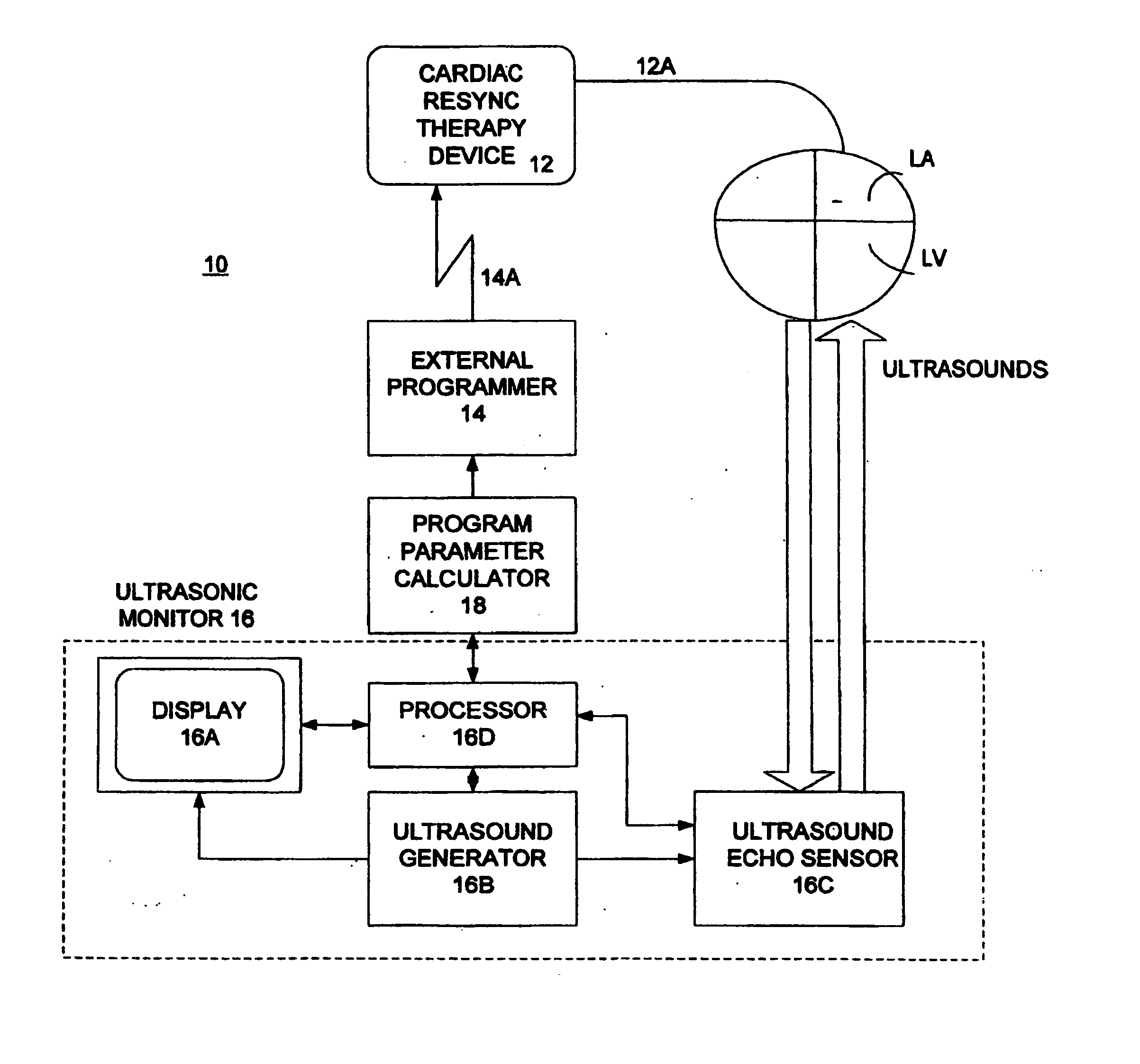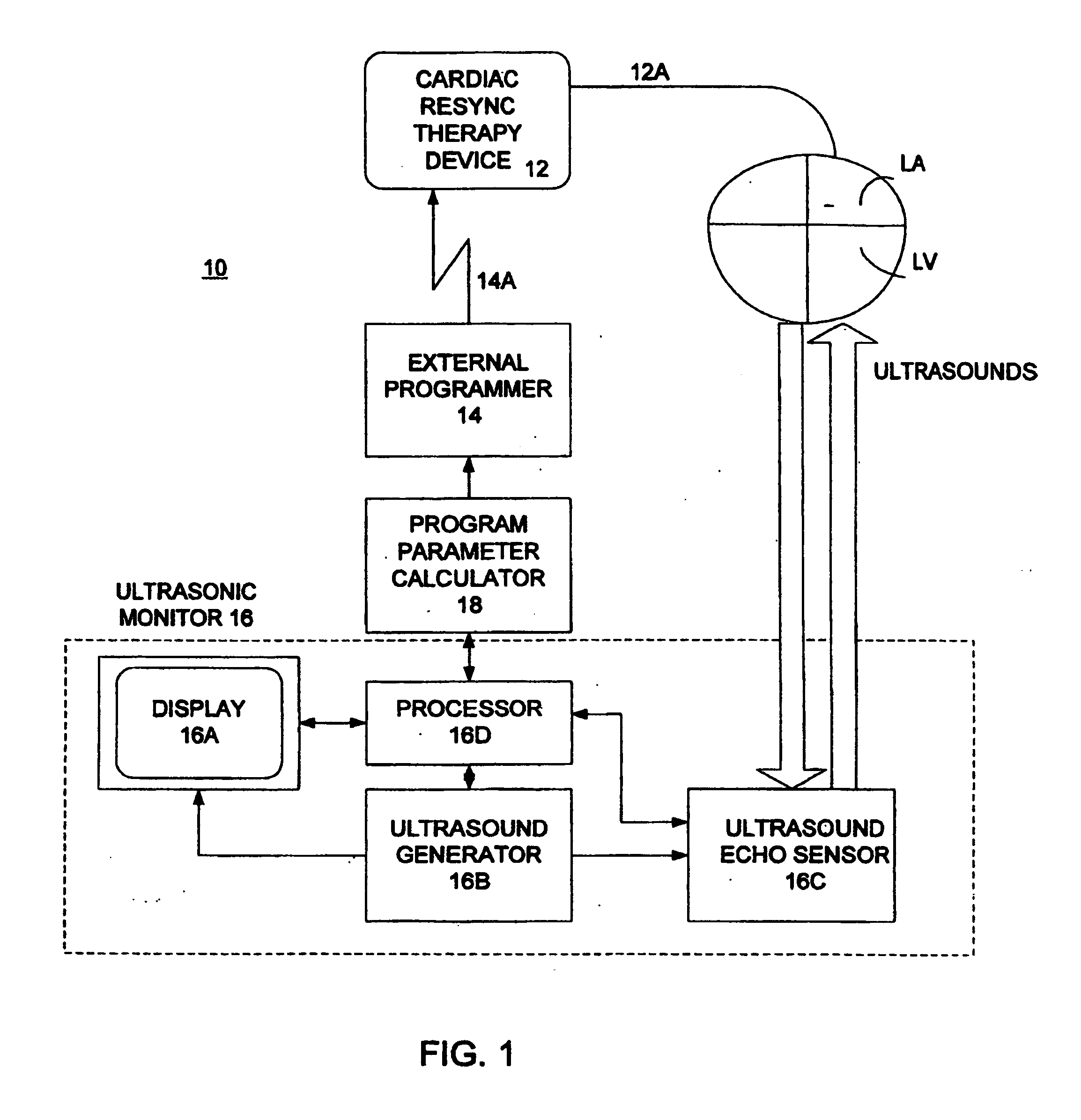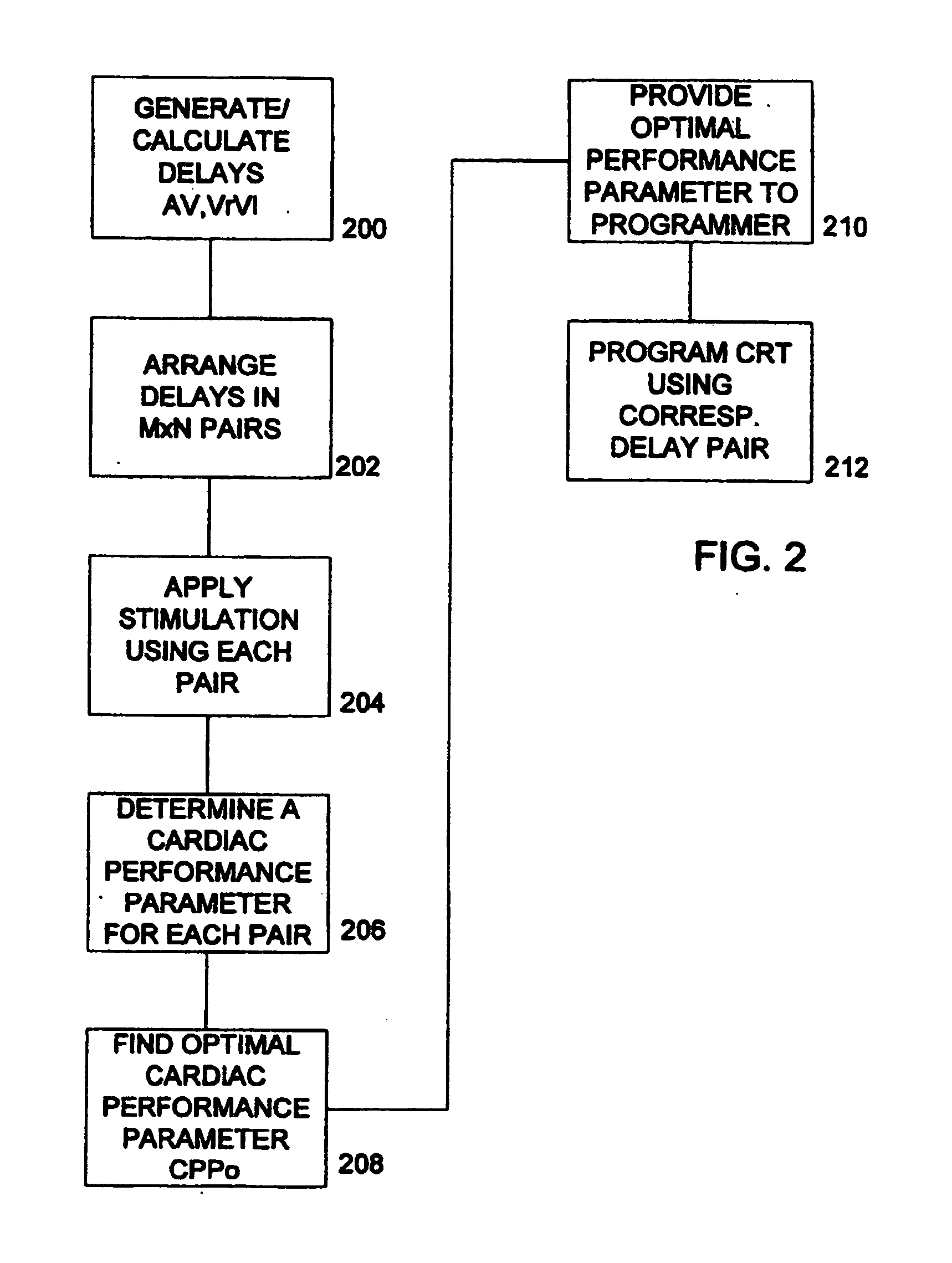Optimization of impedance signals for closed loop programming of cardiac resynchronization therapy devices
a technology of impedance signals and closed loop programming, applied in the field of implantable crt devices, can solve the problems of inability to provide a dynamic control, time-consuming implementation of such modalities, and limitations in signal processing of impedance data over time, so as to improve congestive heart failure symptoms and reduce dysynchrony
- Summary
- Abstract
- Description
- Claims
- Application Information
AI Technical Summary
Benefits of technology
Problems solved by technology
Method used
Image
Examples
Embodiment Construction
[0035] A method and apparatus for programming CRTs is disclosed in the parent application Ser. No. 10 / 779,162 (and are repeated here for convenience in FIGS. 1 and 2). FIG. 1 shows an apparatus for programming a cardiac device such as a CRT (cardiac resynchronization therapy) device 12. The device 12 includes a lead or leads 12A with several electrodes positioned to provide sensing and excitation in a patient's heart H, as discussed in more detail below, including sensing and pacing of at least the right atrium and right and left ventricles]. For the sake of simplicity, the electrodes have been omitted.
[0036] The apparatus 10 further includes a programmer 14 with a wand 14A. The wand 14A is used to transmit data from the programmer to the device 12. As part of this process, the device 12 receives commands to send stimulation signals to the respective cardiac chambers, and to sense the corresponding cardiac response, as discussed in more detail below.
[0037] The apparatus 10 further...
PUM
 Login to View More
Login to View More Abstract
Description
Claims
Application Information
 Login to View More
Login to View More - R&D
- Intellectual Property
- Life Sciences
- Materials
- Tech Scout
- Unparalleled Data Quality
- Higher Quality Content
- 60% Fewer Hallucinations
Browse by: Latest US Patents, China's latest patents, Technical Efficacy Thesaurus, Application Domain, Technology Topic, Popular Technical Reports.
© 2025 PatSnap. All rights reserved.Legal|Privacy policy|Modern Slavery Act Transparency Statement|Sitemap|About US| Contact US: help@patsnap.com



